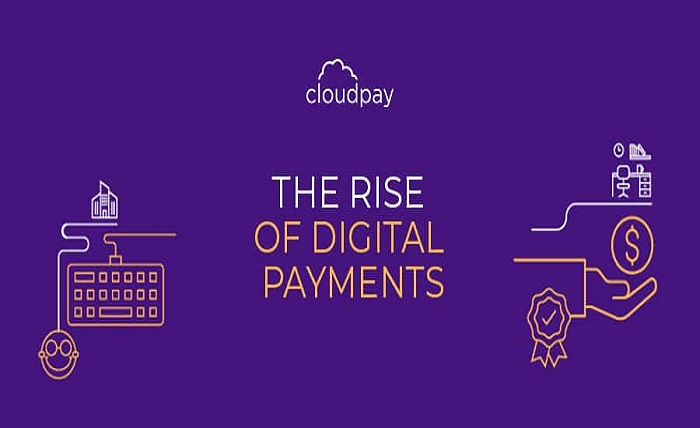The Rise of Digital Payment Platforms in Modern E-Commerce

In today’s digital age, e-commerce has transformed the way people shop and conduct business. Whether purchasing goods or services, consumers expect smooth, fast, and secure transactions. One of the critical components of this evolution is the rise of digital payment platforms. These platforms provide users with a convenient and reliable way to make payments, allowing e-commerce businesses to thrive. The widespread use of mobile technology and the internet has opened new doors for digital payments, enabling consumers to conduct business anywhere and at any time.
The Shift from Traditional Payment Methods
Historically, physical cash and credit cards dominated the world of commerce. However, as technology has advanced, so have the ways people pay for products and services. The shift towards digital payment methods is not simply a trend but a response to the growing demands for faster and more secure transactions. Digital wallets, mobile payment apps, and online banking systems have all become integral to this shift, providing users with flexibility and ease of use.
Consumers today want payment systems that fit into their lifestyles. As a result, companies are continuously working to improve their payment platforms, ensuring they are both user-friendly and highly secure. One of the significant advantages of digital payment platforms is that they eliminate the need for physical money or cards, reducing the risks associated with theft and fraud.
The Role of Security in Digital Payments
With the rise of digital payment systems, concerns about security have grown. Consumers need to trust that their financial information is safe when making online transactions. As such, one of the top priorities for payment platforms is ensuring that their systems are secure and free from cyber threats. Encryption, tokenization, and two-factor authentication are some of the technologies used to protect users’ information.
For instance, when making a purchase using a mobile payment app, encryption ensures that the user’s details are hidden from prying eyes. Additionally, platforms often use tokenization, which replaces sensitive information with a unique identifier that can only be used for that specific transaction. This process ensures that even if a hacker intercepts the data, it is useless without the original token.
Two-factor authentication adds another layer of protection by requiring users to verify their identity through two separate methods, such as a password and a fingerprint or a code sent to their phone. These measures, combined with continuous updates and security protocols, ensure that digital payment platforms are as safe as possible.
The Convenience of Digital Wallets
Digital wallets have become one of the most popular methods for making online transactions. They allow users to store multiple payment methods, such as credit cards, debit cards, and even cryptocurrencies, in one secure place. Not only do they streamline the checkout process, but they also reduce the need for consumers to carry physical cards or remember multiple passwords.
Furthermore, digital wallets are often integrated with mobile apps, making it easy for consumers to make payments on the go. Whether shopping at an online store or paying for a service, users can complete a transaction in seconds with just a few taps on their phone. This level of convenience has helped drive the adoption of digital wallets worldwide.
Platforms like PayPal, Apple Pay, and Google Pay have become household names, trusted by millions of users for their reliability and ease of use. These platforms often include additional features like purchase protection and fraud monitoring, which further enhance consumer confidence in digital payments.
The Global Impact of Digital Payment Platforms
The rise of digital payment platforms has had a profound effect on the global economy. It has allowed businesses to expand their reach beyond local markets, offering products and services to a global audience. Small businesses, in particular, have benefited from this development, as they can now compete on a global scale without the need for a physical storefront.
Moreover, digital payment platforms have improved access to financial services in developing countries. In regions where traditional banking infrastructure may be lacking, mobile payment apps have provided a solution for millions of people, allowing them to participate in the digital economy. These platforms have empowered individuals and businesses alike, fostering economic growth and development.
The Future of Digital Payments
As technology continues to evolve, the future of digital payments looks promising. Innovations like blockchain and cryptocurrency are expected to play a more significant role in how people transact online. These technologies offer the potential for faster, cheaper, and more secure payments, further enhancing the appeal of digital payment platforms.
Additionally, artificial intelligence (AI) is being integrated into payment systems to provide a more personalized experience for users. AI can analyze spending patterns, detect fraudulent activity, and offer tailored recommendations, making digital payments even more efficient and secure.
Companies that embrace these technologies will likely have a competitive advantage in the rapidly growing digital payment market. However, as with any technological advancement, it will be crucial for businesses to stay ahead of the curve in terms of security and user experience.
Conclusion
The rise of digital payment platforms has transformed the way people conduct business and manage their finances. With the integration of mobile technology and advanced security features, these platforms have become an essential part of the modern economy. Although challenges remain, particularly in terms of security, the convenience and global reach offered by digital payments are undeniable.
As consumers continue to demand faster, more secure, and more flexible payment options, the digital payment industry is poised for continued growth. Platforms like 22 Bet may not immediately come to mind when discussing financial innovations, but they are part of a broader trend that is reshaping how the world transacts. The future of e-commerce will undoubtedly be defined by further innovations in the digital payment space, offering exciting opportunities for both consumers and businesses.




